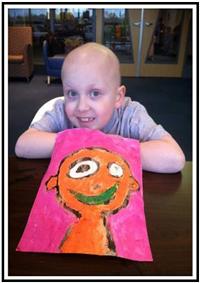8 Tips for Teaching Our Children About Appropriate Touch
By TMoM Team Member Dennette Bailey
Appropriate touch and sexual abuse are not easy conversations to have with our children. However, it gets even more difficult each year you avoid having them. As a mom, educator and former victim of child abuse, I know it is important to start these conversations early so that children develop trust in their caregivers to protect them and they gain confidence in their ability to speak up should someone violate them.
In thinking about how to address these issues with your children and with children you care about, please keep these 8 tips in mind.
1st – Talk about the parts of the body and appropriate touch early. Children can begin learning the parts of the body as early as 1 year old. Use the real words for body parts and not made up words. Even if your child should develop a made-up word, when they use a made-up word to describe a body part, always answer them back with the real word for the body part.
2nd – Tell your child early why you touch them. For example, when giving a bath tell your child you are touching their chest to wash it because you are teaching them how to wash themselves, and that soon they will be able to wash themselves so that no one will need to touch their chest area for any reason.
3rd – Tell your child that secrets about their body and anyone touching their body is never ok. Explain to them that a person that loves them will not ask them to keep a secret about anything that has happened to them, any touching that is done to them, or that they are asked to do to someone else.
4th – Teach your child to always tell you when someone touches them even if it is not a secret. At my preschool children are expected to enroll only if they are potty trained. However, this does not mean that they will never need help after having a Bowel movement. So, I explain to the parent and the child that whenever a teacher helps a child during potty time they should always go home and tell their parent that they had help wiping that day. I do this to help the child and the parent become more comfortable talking about touch. As children grow up, they need to have a healthy frame of reference for how to talk about their bodies and what safe touching looks like. It is my hope that should the child ever experience something odd regarding touch in their future, they will be readily comfortable to speak about it. I also want the children to have had an early experience that demonstrates an adult approving of them telling their caregiver about touch experiences. In this way they should acquire the healthy instinct that if an adult responds without regard for their body safety, that is not normal, and they should tell someone.
5th – Talk about “what if” with your child. This will help you give your child words for things that can come up that they might be unsure about. For example, you can ask your child, “what can you do if someone asks you to touch them in their private area”?
6th –Tell your child that their private areas are from their neck to their knees. This takes away the confusion for your child. Your child should not have to determine if a body part was not really that private. Also, it could help your child avoid being groomed by someone who might first tickle them. Teach them that neck to knees are off limits no matter what. This might seem extreme but more often than not , children will be without their parents at some time and it just isn’t fair to the child to have to figure out if they should tell the parent about something that may have made them feel awkward because it wasn’t a chest/breast or vagina /penis touch.
7th – Give your child a safe person or safe word. Tell your child who else they can talk to if they ever feel scared to tell you about something. Give them a word or phrase they can use to alert you when they are scared. I taught my children that they could tell my sister anything. They knew that there was no family “business” that she could not know. For shy children or children embarrassed by correct body part verbiage, a code word or phrase might also be helpful to them to at least tell you something is wrong.
Be mindful that you do not teach your child that they should not tell anyone anything that happens in your home. Instead, share with your child why we do not share everything with everyone we know (you might not want the neighbor to know you are lactose intolerant). Make it clear that we have a group pf people that we can tell anything that makes us feel unsafe, for example, grandparents, teachers, school nurse etc.
8th – Finally, teach your child that their body belongs to them. They have a right to say no to anything done to their body or anything they are asked to do someone else’s body that makes them feel uncomfortable. Start this concept from the very beginning by not asking or insisting that they give friends and family hugs and kisses. Allow them to demonstrate their love and affection their way. Ask if they want a kiss or a hug instead of assuming that they want to kiss and hug. When family members and friends tell your child to give them a kiss and hug- say in front of your child -only if you want to. This will establish to your child that you approve of their right to refuse or not participate in physical affection. The result will be that when you are not in your child’s presence, they will already feel comfortable saying no if they need to. Moreover, they will not feel intimidated or think they will get in trouble for not being “nice”.
Teaching your child about appropriate touch does not have to be difficult or cause you anxiety. Treat this lesson like you would any safety lesson you give your child. Most of all let your child know you love them and want them safe -no matter what.
Want to see more blogs like this and get notifications on local events and happenings? Subscribe to Triad Moms on Main’s free weekly newsletters here.







